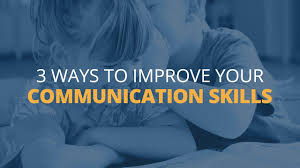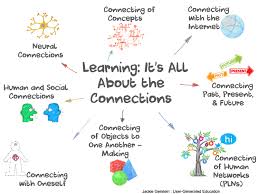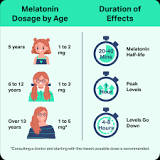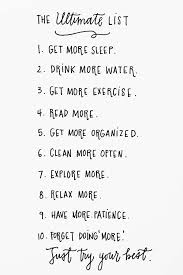Effective communication is a critical skill that can significantly impact both personal and professional success. It involves the ability to convey ideas, thoughts, and feelings clearly and concisely to others. Improved communication skills can lead to better relationships, increased productivity, and enhanced teamwork.
One of the most important aspects of effective communication is active listening. Active listening involves paying attention to what the other person is saying without interrupting or judging them. It also involves asking questions to clarify any misunderstandings and paraphrasing what the other person has said to ensure that you have understood them correctly.
Another important aspect of effective communication is non-verbal communication. Non-verbal cues such as body language, facial expressions, and tone of voice can convey a lot of information about how we feel and what we mean. Being aware of our own non-verbal cues and reading those of others can help us communicate more effectively.
Improving communication skills also involves being aware of cultural differences in communication styles. Different cultures have different norms when it comes to verbal and non-verbal communication. Being aware of these differences can help us avoid misunderstandings and communicate more effectively with people from different backgrounds.
In addition to these skills, effective communication also requires practice. Like any skill, it takes time and effort to develop good communication habits. One way to practice is by seeking out opportunities to communicate with others in different settings such as public speaking events or group discussions.
Improved communication skills can have a significant impact on our personal and professional lives. By actively listening, being aware of non-verbal cues, understanding cultural differences, and practicing regularly, we can become more effective communicators who are better able to connect with others, build stronger relationships, and achieve our goals.
8 Benefits of Improving Your Communication Skills
- Increased confidence in public speaking and presentations
- Improved ability to collaborate with others
- Enhanced creativity when problem solving
- Improved ability to effectively negotiate and persuade others
- Better understanding of diverse perspectives in a group setting
- Ability to clearly articulate thoughts and ideas more effectively
- Greater capacity for empathy towards the viewpoints of others
- More successful networking opportunities
Challenges of Developing Strong Communication Skills
Increased confidence in public speaking and presentations
Effective communication skills can lead to increased confidence in public speaking and presentations. Public speaking is a common fear for many people, but with improved communication skills, it can become a strength.
One way to increase confidence in public speaking is by being well-prepared. Effective communication involves knowing your audience, understanding your message, and being able to articulate it clearly and concisely. By preparing thoroughly, you can feel more confident in your ability to deliver your message effectively.
Another way to increase confidence in public speaking is by being aware of your body language and tone of voice. Non-verbal cues such as posture, eye contact, and gestures can convey confidence and authority. By practicing good body language habits, you can project confidence and make a strong impression on your audience.
Improved communication skills also involve being able to handle questions and feedback effectively. By actively listening to the questions or comments of the audience and responding thoughtfully, you can demonstrate expertise and build credibility.
In addition to these skills, practice is essential for building confidence in public speaking. By seeking out opportunities to speak in front of others such as at networking events or Toastmasters meetings, you can gain valuable experience that will help you become more comfortable and confident over time.
In conclusion, improved communication skills can lead to increased confidence in public speaking and presentations. By being well-prepared, aware of body language and tone of voice, able to handle questions effectively, and practicing regularly, anyone can become a confident and effective public speaker.
Improved ability to collaborate with others
Effective communication is essential for successful collaboration. When we communicate clearly and openly, we can better understand the perspectives and ideas of others, which in turn leads to more effective collaboration.
Improved communication skills allow us to express our own ideas and thoughts more clearly, making it easier for others to understand what we are trying to say. This reduces the likelihood of misunderstandings and ensures that everyone is on the same page.
Furthermore, good communication skills enable us to listen actively to others’ ideas and perspectives. By listening attentively, we can better understand the needs and concerns of our collaborators. This helps us work together more effectively towards a common goal.
Effective communication also helps build trust between collaborators. When we communicate honestly and openly, we create an environment of trust where everyone feels comfortable sharing their thoughts and ideas. This fosters a sense of teamwork, which is essential for successful collaboration.
In conclusion, improved communication skills are critical for effective collaboration. By communicating clearly, listening actively, understanding cultural differences, and building trust with our collaborators, we can work together more effectively towards a common goal.
Enhanced creativity when problem solving
Effective communication is a critical skill that can have numerous benefits, including enhanced creativity when problem-solving. When we are able to communicate our ideas clearly and effectively, we are better able to collaborate with others and generate new ideas.
Improved communication skills can lead to a more open and inclusive environment where everyone feels comfortable sharing their thoughts and opinions. This can lead to a wider range of perspectives being considered when problem-solving, which can ultimately lead to more creative solutions.
When we are able to communicate our ideas clearly, we are also better able to receive feedback from others. This feedback can help us refine our ideas and come up with even more creative solutions. Effective communication also allows us to ask questions and clarify any misunderstandings, which can help us identify potential roadblocks or challenges early on in the problem-solving process.
Furthermore, when we are able to communicate effectively with others, we are better able to build trust and rapport. This trust can lead to more open and honest communication, which can foster an environment where people feel comfortable taking risks and thinking outside the box.
In conclusion, enhanced creativity is just one of the many benefits of improved communication skills. By improving our ability to communicate effectively with others, we can generate new ideas, receive valuable feedback, identify potential roadblocks early on, build trust and rapport with others, and ultimately come up with more creative solutions when problem-solving.
Improved ability to effectively negotiate and persuade others
Effective negotiation and persuasion are critical skills in both personal and professional settings. Improved communication skills can significantly enhance our ability to negotiate and persuade others.
When negotiating, effective communication involves being able to clearly articulate our needs and interests while also understanding the needs and interests of the other party. Active listening, asking questions, and using non-verbal cues can help us better understand the other party’s perspective and find common ground.
Persuasion is also a key aspect of effective communication. Whether we are trying to convince someone to support our idea or make a purchase, persuasive communication involves presenting our arguments in a clear, concise, and compelling way. It also involves being able to anticipate potential objections and address them effectively.
Improved communication skills can help us become more persuasive by allowing us to tailor our message to the audience. By understanding their needs, values, and beliefs, we can present our arguments in a way that resonates with them. Effective persuasion also involves building rapport with the other person through active listening and non-verbal cues.
In conclusion, improved communication skills can significantly enhance our ability to negotiate and persuade others. By being able to clearly articulate our needs while also understanding the needs of others, using active listening and non-verbal cues effectively, anticipating objections, tailoring our message to the audience, building rapport with others through effective communication, we can become more successful negotiators and persuaders in both personal and professional settings.
Better understanding of diverse perspectives in a group setting
Improved communication skills can lead to a better understanding of diverse perspectives in a group setting. When people from different backgrounds and experiences come together, it can be challenging to understand and appreciate each other’s viewpoints. However, by improving our communication skills, we can create an environment where everyone feels heard and valued.
One way to achieve this is by actively listening to others’ perspectives. By listening without judgment or interruption, we can gain a better understanding of where they are coming from and why they hold certain beliefs. This can help us see things from their point of view and appreciate their perspective.
Another way to improve our understanding of diverse perspectives is by asking questions. Questions can help us clarify any misunderstandings or assumptions we may have about someone else’s viewpoint. They can also encourage others to share more about their experiences, which can lead to a deeper understanding of their perspective.
In addition, being aware of cultural differences in communication styles is essential for better understanding diverse perspectives in a group setting. Different cultures have different norms when it comes to verbal and non-verbal communication. Being aware of these differences can help us avoid misunderstandings and communicate more effectively with people from different backgrounds.
By improving our communication skills and creating an environment where everyone feels heard and valued, we can gain a better understanding of diverse perspectives in a group setting. This leads to more productive discussions, better decision-making processes, and stronger relationships between team members. Ultimately, this pro of improved communication skills benefits not only the individuals involved but also the organization as a whole.
Ability to clearly articulate thoughts and ideas more effectively
One of the key benefits of improved communication skills is the ability to clearly articulate thoughts and ideas more effectively. When we are able to express ourselves clearly, we can better convey our message and ensure that others understand our perspective.
Clear communication is particularly important in professional settings, where misunderstandings or miscommunications can lead to costly mistakes or missed opportunities. By improving our ability to articulate our thoughts and ideas, we can increase our effectiveness in the workplace and enhance our career prospects.
In personal relationships, clear communication can also improve our connections with others. Being able to express ourselves clearly can help us avoid misunderstandings or conflicts with loved ones, leading to stronger and more fulfilling relationships.
Improving our ability to articulate our thoughts and ideas also helps us become better problem-solvers. When we are able to clearly communicate a problem or challenge, we are better equipped to find solutions and make progress towards resolving issues.
Overall, the ability to clearly articulate thoughts and ideas is a valuable skill that can have a positive impact on both personal and professional aspects of life. By working on improving this skill through practice and feedback from others, we can become more effective communicators who are better equipped for success.
Greater capacity for empathy towards the viewpoints of others
Improved communication skills can lead to a greater capacity for empathy towards the viewpoints of others. When we communicate effectively, we are better able to understand the perspectives and experiences of those around us. This understanding can help us develop empathy towards others, which is the ability to put ourselves in their shoes and understand their feelings and emotions.
Empathy is an essential skill that helps us connect with others on a deeper level. It allows us to build stronger relationships, resolve conflicts more effectively, and work collaboratively towards common goals. When we are empathetic towards others, we are better able to communicate our own thoughts and feelings in a way that is respectful and considerate of their needs.
Improved communication skills can also help us overcome biases and prejudices that may prevent us from understanding the viewpoints of others. By actively listening and engaging in open-minded dialogue with those who have different perspectives than our own, we can broaden our understanding of the world around us.
In today’s diverse society, it’s more important than ever to develop empathy towards people from different backgrounds. Improved communication skills can help us do just that by allowing us to connect with others on a deeper level and develop a greater appreciation for their unique experiences and perspectives.
In conclusion, improved communication skills can lead to a greater capacity for empathy towards the viewpoints of others. By actively listening, engaging in open-minded dialogue, and being aware of our own biases, we can become more empathetic communicators who are better able to connect with those around us.
More successful networking opportunities
Improved communication skills can lead to more successful networking opportunities. Networking is an essential part of building professional relationships and expanding one’s career opportunities. Effective communication skills can help individuals make a positive impression on others, establish rapport, and convey their ideas and goals clearly.
Networking events can be challenging for some people, especially those who are introverted or uncomfortable with small talk. Improved communication skills can help individuals feel more confident and comfortable in these situations. By actively listening to others, asking questions, and engaging in meaningful conversations, individuals can build connections that may lead to new job opportunities, collaborations, or partnerships.
Effective communication skills also allow individuals to present themselves in a professional manner. This includes using appropriate language and tone of voice, maintaining eye contact, and being aware of non-verbal cues. By presenting themselves confidently and professionally, individuals can make a positive impression on others and establish themselves as credible and trustworthy.
In today’s digital age, networking opportunities are not limited to in-person events. Social media platforms such as LinkedIn provide opportunities for individuals to connect with professionals from all over the world. Effective communication skills are just as important in these online interactions as they are in face-to-face interactions.
In conclusion, improved communication skills can lead to more successful networking opportunities by helping individuals establish connections with others more effectively. By actively listening, engaging in meaningful conversations, presenting oneself professionally, and being aware of non-verbal cues both online and offline, individuals can expand their professional networks and open up new career opportunities.
Increased Expectations
Improved communication skills can certainly have their benefits, but as with any skill, there are also potential drawbacks. One such drawback is the increased expectations that may come with improved communication skills.
When we communicate effectively, we are better able to articulate our thoughts and ideas. This can lead to others having higher expectations of us in terms of the quality and clarity of our communication. Colleagues and supervisors may expect us to be able to express ourselves clearly and persuasively in meetings or presentations. Customers may expect us to be able to answer their questions thoroughly and provide them with excellent service.
While these increased expectations can be challenging, they are not necessarily a bad thing. They can push us to continue improving our communication skills and help us develop a reputation as a skilled communicator. However, it is important to manage these expectations appropriately by setting realistic goals for ourselves and communicating openly with others about what we are capable of.
In some cases, increased expectations may also lead to additional stress or pressure. It is important to recognize when this is happening and take steps to manage our stress levels accordingly. This might involve taking breaks when needed, practicing relaxation techniques like deep breathing or meditation, or seeking support from colleagues or a mental health professional if necessary.
Overall, while increased expectations may be a potential con of improved communication skills, they do not negate the many benefits that effective communication can bring. By managing these expectations appropriately and taking care of ourselves along the way, we can continue developing our communication skills while maintaining balance in our personal and professional lives.
Time Commitment
While improved communication skills can have a significant positive impact on our personal and professional lives, it is important to acknowledge that there is a con associated with developing these skills. One of the biggest drawbacks of improving communication skills is the time commitment required to practice and study.
Developing better communication skills requires consistent effort and practice. This means investing time in activities such as attending workshops or classes, reading books or articles, and practicing communication techniques in real-life situations. It can be challenging to find the time to commit to these activities, especially if we already have busy schedules.
Furthermore, improving communication skills is not something that happens overnight. It takes time and patience to see results. It can be frustrating when we don’t see immediate improvement in our ability to communicate effectively.
However, it’s important to remember that investing time in developing better communication skills is worth it in the long run. Effective communication can lead to better relationships, increased productivity, and enhanced teamwork. By committing the time and effort required to improve our communication skills, we can reap these benefits and achieve greater success both personally and professionally.
In conclusion, while improving communication skills requires a significant investment of time in practice and study, the benefits of effective communication are well worth it. By acknowledging this con and making a commitment to invest the necessary time, we can develop stronger relationships, increase productivity, and ultimately achieve greater success in all areas of our lives.
Uncomfortable Situations
While there are many benefits to improving one’s communication skills, it’s important to acknowledge that there can also be some challenges. One of the potential downsides of improving communication skills is that it may require facing difficult conversations or uncomfortable situations that can be anxiety-inducing.
For example, someone who is working on their communication skills may need to have a conversation with a coworker about a difficult topic such as a disagreement or performance issue. This can be uncomfortable and cause anxiety, especially if the individual is not used to having these types of conversations.
However, it’s important to remember that avoiding these conversations can lead to more significant problems down the road. By improving communication skills and being able to address these issues in an effective and respectful manner, individuals can prevent misunderstandings and build stronger relationships with their coworkers or loved ones.
It’s also important to note that improving communication skills doesn’t happen overnight. It takes time and practice to become comfortable with having difficult conversations or addressing uncomfortable situations. Seeking out resources such as books, workshops, or therapy can help individuals develop the necessary skills and confidence.
In conclusion, while there may be some discomfort associated with improving communication skills, the benefits far outweigh the drawbacks. By facing difficult conversations head-on and developing effective communication habits, individuals can improve their relationships and achieve greater success both personally and professionally.
Potential for Miscommunication
Despite the many benefits of improved communication skills, there is one potential con that should not be overlooked: the potential for miscommunication. Even with excellent communication skills, misunderstandings can still occur due to language barriers or differences in cultural norms and expectations.
Language barriers can be a significant challenge in effective communication. Even if both parties speak the same language, differences in dialects, accents, and vocabulary can lead to misunderstandings. For example, a word that means one thing in one culture may have a different meaning or connotation in another culture.
Cultural norms and expectations can also lead to miscommunication. Different cultures have different ways of expressing themselves and interpreting messages. What may seem like a straightforward message in one culture may be interpreted differently in another culture, leading to misunderstandings.
To overcome these challenges, it’s important to be aware of potential cultural differences and language barriers when communicating with others. This can involve taking the time to learn about different cultures and their communication styles or using translation tools when communicating with someone who speaks a different language.
It’s also important to clarify any misunderstandings as soon as they arise. If you sense that there may be a misunderstanding, it’s important to ask questions and seek clarification before assuming anything.
In conclusion, while improved communication skills are essential for success in both personal and professional settings, it’s important to recognize that miscommunication can still occur due to language barriers or cultural differences. By being aware of these challenges and taking steps to overcome them, we can become more effective communicators who are better able to connect with others across cultures and languages.




